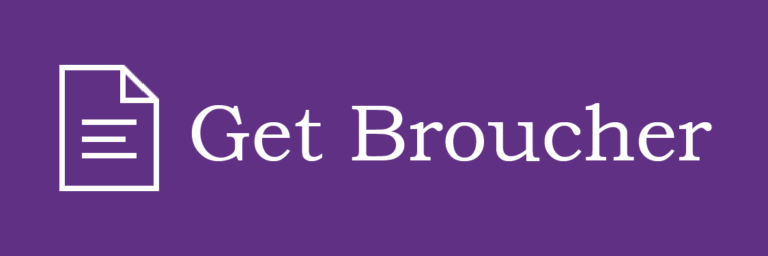Calibration of Instruments
Calibration is the process of adjusting and verifying the accuracy of measurement instruments, ensuring that they provide reliable and consistent results. At Uniquo, we specialize in calibrating a wide range of instruments used in industrial, laboratory, and commercial applications. Our calibration services help organizations maintain compliance with regulatory standards, enhance the reliability of their equipment, and optimize operational efficiency.
Through precise and regular calibration, we ensure that your instruments remain within the required specifications, reducing measurement errors and increasing the lifespan of your devices. Whether it’s for temperature, pressure, electrical, or mechanical instruments, we offer expert calibration services to meet all your needs.
Why is Calibration Important?
- Accuracy and Precision
Calibration ensures that your instruments provide accurate measurements. Over time, even the best instruments can drift from their original settings, leading to erroneous results. Regular calibration guarantees that your instruments operate within the required tolerances. - Compliance with Industry Standards
Many industries, such as pharmaceuticals, food production, and manufacturing, require instruments to be calibrated regularly to comply with national and international standards. Calibration is a key part of ensuring compliance with ISO, FDA, and other regulatory bodies. - Quality Control
Maintaining accurate measurements is essential for ensuring the quality and consistency of products. Calibration minimizes the risk of defects and ensures that your output meets customer expectations. - Prevent Equipment Failure
Through regular calibration, potential issues or discrepancies are identified early. This proactive approach can help prevent costly repairs and reduce downtime caused by malfunctioning equipment.
Types of Instruments We Calibrate
- Temperature Instruments: Thermometers, thermocouples, and temperature controllers. Ensures precise temperature control for industries such as food safety, pharmaceuticals, and manufacturing.
- Pressure Instruments: Pressure gauges, transducers, and controllers.Vital for industries where accurate pressure measurements are crucial, such as oil and gas, aerospace, and automotive sectors.
- Electrical Instruments: Multimeters, oscilloscopes, power analyzers, and voltage regulators. Ensures the reliability of electrical testing in laboratory and industrial applications.
- Flow Meters: Devices used for measuring liquid or gas flow. Essential for industries like water treatment, chemical manufacturing, and oil refining.
- Mechanical Instruments:Force gauges, torque wrenches, and vibration analyzers. Ensures that mechanical systems are working within safe and efficient limits.
- Analytical Instruments: Instruments used in laboratories, including spectrometers, pH meters, and refractometers. Crucial for maintaining accuracy in scientific research and product testing.
Calibration Process
- Initial Evaluation: Our experts assess your instrument’s current performance, comparing its output with known reference standards.
- Adjustment and Calibration: If needed, the instrument is adjusted to align with industry-standard measurements, ensuring its accuracy.
- Testing: We perform rigorous tests to verify that the instrument now operates within its specified tolerances.
- Certification: After calibration, we provide a detailed calibration certificate, which includes test results, adjustments made, and recommendations for future calibration schedules.
- Ongoing Maintenance: We offer scheduled maintenance and recalibration services to ensure your equipment remains accurate over time.
Benefits of Regular Calibration
- Improved Product Quality
Accurate measurement is key to maintaining product quality. Regular calibration ensures that all measurements meet the required specifications, avoiding defects. - Cost Savings
By identifying and fixing discrepancies early, you can avoid expensive repairs or replacements. Calibration reduces the risk of unproductive downtime and costly mistakes. - Enhanced Efficiency
Well-calibrated instruments provide consistent results, optimizing your operations and ensuring smoother workflows. - Safety and Compliance
Many industries are governed by stringent regulations that require calibrated instruments. Regular calibration ensures compliance and reduces the risk of penalties.

Can you calibrate all types of instruments?
Yes, we calibrate a wide range of instruments, including temperature, pressure, mechanical, electrical, and analytical devices.
What industries need calibration services?
Calibration is essential for industries such as manufacturing, pharmaceuticals, food production, oil and gas, automotive, and scientific research.
How often should instruments be calibrated?
The frequency of calibration depends on the type of instrument, usage, and industry requirements. Typically, instruments should be calibrated annually, or more frequently in highly regulated industries.
Why is calibration important?
Calibration ensures that instruments produce accurate and precise readings, which is essential for product quality, safety, and compliance with industry regulations.
1. What is calibration?
Calibration is the process of adjusting an instrument to ensure it provides accurate and reliable measurements, often by comparing its output to a known standard.
Why Choose Our Calibration Services?
- Experienced Technicians
Our team consists of highly trained and certified calibration specialists who ensure precision and reliability. - Comprehensive Solutions
We offer calibration services for a broad spectrum of instruments across various industries, ensuring quality and compliance. - Accurate and Reliable Results
We use state-of-the-art calibration equipment to provide accurate results and ensure the long-term performance of your instruments. - Tailored Services
Our calibration services are customized to meet the specific needs of your business and regulatory requirements.
